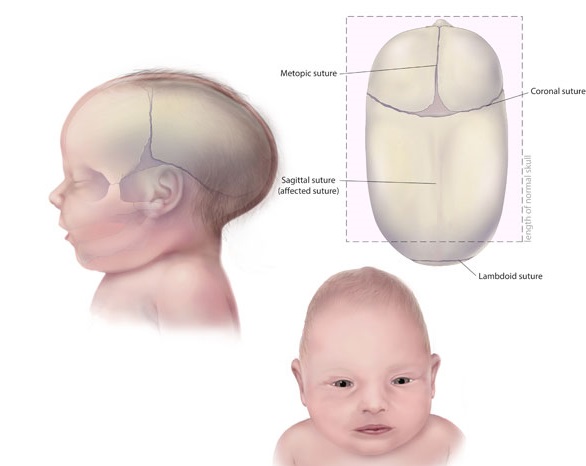Developmental Craniosynostosis
India
-
Our Price USD 6300
-
Hospital Price USD 7000
-
You Save : USD 700
Booking Amount: USD 630. Pay Remaining 90% at the hospital.
Book NowAdditional Credit
Among the important extras we offer as part of the Additional Credit are the following:
-
Site Tourism For The Patient & Attendant
-
Airport Pick & Drop Service
-
Ambulance service at airport
-
Priority appointments with The Doctor
-
Cancel Easily Anytime with Full Refund
-
Room Upgradation
-
Free Online Doctor Consultation Valued at USD 20
-
Free hotel Stay for 5 to 7 days Accordingly
-
Welcome Kit at Arrival
-
Interpreter
-
Medical Visa Assistance
What is Included?
- Doctor consultation charges
- Lab tests and diagnostic charges
- Room charges inside hospital during the procedure
- Surgeon Fee
- Cost of implant
- Nursing charges
- Hospital surgery suite charges
- Anesthesia charges
- Routine medicines and routine consumables (bandages, dressings etc.)
- Food and Beverages inside hospital stay for patient and one attendant.
What is not Included?
- Extra Radiology Investigations
- Healthcare Professionals Charges of other consultations.
- Other Requested Services such as Laundry etc.
- Additional Pharmaceutical Products and Medicines After Discharge from Hospital.
- Management of Conditions Unrelated to Procedures or Pre-Existing.
- The cost of any additional implants will be in addition to the package cost.
Package Description
Developmental Craniosynostosis:
An endoscope, a thin tube through which the surgeon may view inside and outside the skull through extremely small incisions in the scalp, is used during the treatment. To allow the baby's brain to grow properly, the surgeon opens the prematurely fused suture.
Disease Overview:
Craniosynostosis
Craniosynostosis is a birth defect in which one or more of your baby's skull's fibrous joints (cranial sutures) close prematurely (fuse) before the brain is fully formed. The brain continues to grow, resulting in a deformed head.
Sutures are normally flexible during infancy, allowing your baby's brain to develop. The sutures meet in the huge soft region (fontanel) on top of the head in the front of the skull. The velvety area you feel immediately behind your baby's brow is the anterior fontanel. The next largest is tucked away in the rear (posterior). A little fontanel may be found on either side of the skull.
Craniosynostosis is the early fusion of a single cranial suture, however it can affect more than one of your baby's sutures (multiple suture craniosynostosis). Certain hereditary disorders can induce craniosynostosis in rare circumstances (syndromic craniosynostosis).
Disease Signs and Symptoms:
The indications of craniosynostosis are normally visible at birth, but they will grow more prominent over your baby's first few months. The number of fused sutures and when the fusion occurs in brain development determine the signs and severity. These can include the following:
- The form of a misshapen skull varies depending on which sutures are impacted.
- A strange sensation or a shrinking fontanel on your baby's head
- Along the damaged sutures, a high, hard ridge develops.
- Your baby's head will develop slowly or not at all as he or she grows.
Disease Causes:
The aetiology of craniosynostosis is frequently unknown, however it is occasionally linked to hereditary problems.
The most frequent kind of craniosynostosis is nonsyndromic craniosynostosis, which has no known aetiology but is assumed to be caused by a mix of genes and environmental factors.
Certain genetic disorders, such as Apert syndrome, Pfeiffer syndrome, or Crouzon syndrome, might disrupt your baby's skull development and produce syndromic craniosynostosis. Other physical characteristics and health issues are generally present in these disorders.
Disease Diagnosis:
Craniosynostosis need the consultation of a professional, such as a paediatric neurosurgeon or a plastic and reconstructive surgery specialist. The following symptoms may indicate craniosynostosis:
Examination of the body. Your baby's head will be examined for anomalies such as suture ridges and facial deformities by your doctor.
Studies on imaging If any sutures have fused, a CT scan or magnetic resonance imaging (MRI) of your baby's skull can reveal this. It's possible to employ cranial ultrasound imaging. Because fused sutures are undetectable after fused, they can be identified by their absence or the ridging of the suture line. To get exact measurements of the skull form, a laser scan and pictures may be employed.
Genetic testing is a method of determining a person' Genetic testing may be used to discover an underlying genetic condition if your doctor suspects one.
Disease Treatment:
Craniosynostosis that is mild may not require treatment. If the cranial sutures are open and the head shape is incorrect, your doctor may propose a specially designed helmet to assist realign your baby's head. The moulded helmet can help your baby's brain grow and fix the form of his or her skull in this case.
Surgery, on the other hand, is the most common therapy for most newborns. The kind of craniosynostosis and whether or not there is an underlying hereditary abnormality determine the type and timing of surgery. It is not uncommon for many surgeries to be necessary.
The goal of surgery is to enhance your baby's look by correcting the aberrant head shape, reducing or preventing pressure on the brain, creating room for the brain to grow normally, and reducing or preventing pressure on the brain.
Surgery
The treatment is usually performed by a team that comprises an expert in head and face surgery (craniofacial surgeon) and a specialist in brain surgery (neurosurgeon). Endoscopic and open surgery are both options for surgery. Both treatments give excellent aesthetic outcomes with minimal risk of problems.
Endoscopic surgery is a type of surgery that involves the use of This minimally invasive operation is suitable for newborns up to the age of six months. The surgeon removes the problematic suture with a lighted tube and camera (endoscope) placed through small scalp incisions, allowing your baby's brain to grow normally. Endoscopic surgery has a smaller incision than open surgery, requires just a one-night hospital stay, and usually does not require a blood transfusion.
Open surgery is a type of surgery in which the patient is Open surgery is usually performed on newborns older than 6 months. After making an incision in the scalp and cranial bones, the surgeon reshapes the afflicted area of the skull. The position of the cranium is kept in place by absorbable plates and screws. Open surgery normally necessitates a three- to four-day hospital stay, as well as blood transfusions. It's usually a one-time treatment, but in more complicated situations, repeated open procedures to adjust the baby's skull shape may be necessary.
Information related to Treatment
Package Details
Days in Hospital
6 Days
Days in Hotel
*
14 Days
Room Type
Private
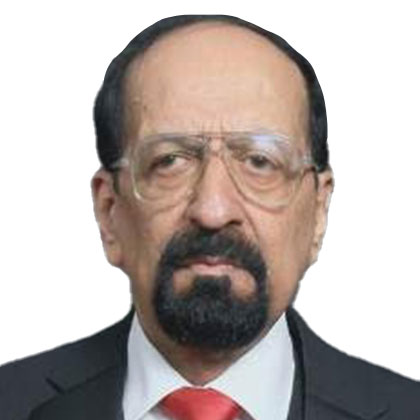
Treating Doctor
Dr. P. N. Renjen
Neurologist- Stroke (Thrombolytic Therapy), Botox Therapy for Post Stroke Spasticity, Surgical Epilepsy, DBS (Deep Brain Stimulation) and Headache, Celebrovasculkar Surgey
Indraprastha Apollo Hospitals, New Delhi New Delhi, India
36 Years of Experience
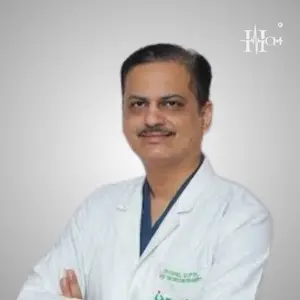
Treating Doctor
Dr Rahul Gupta
Neuro surgeon- Spine Surgery, Brain Tumour Surgery, Endovascular Neurosurgeon, microscopic surgery, Meningiomas, Craniopharyngioma, Brain Tumor Surgery, Cranio Vertebral anomalies, Intraventricular Tumour Surgery, Skull Base Anterior Surgery, Pituitary Adenoma including endonasal, Endoscopic Acoustic Schwanomas, CSF rhinorrhia, Cerebrovascular Neurosurgery
Fortis Hospital Noida Noida, India
27 Years of Experience
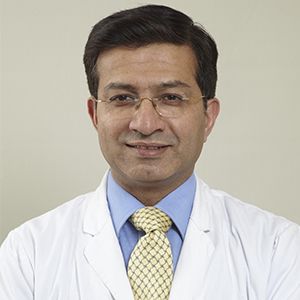
Treating Doctor
Prof. (Col.) Dr. Bipin Walia
Neuro surgeon- Spine Surgery, Brain Tumour Surgery, Minimally Invasive Spine Surgery, Kyphoplasty, Brain suite, Laminectomy, Traumatic brain injury (tbi) treatment, Cervical Disc Replacement
Max Super Speciality Hospital New Delhi, India
26 Years of Experience
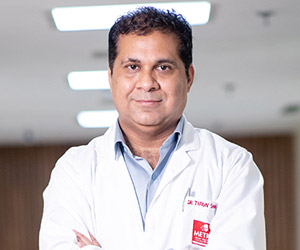
Treating Doctor
Dr Tarun Sharma
Neuro surgeon,Spine Surgeon- Peripheral nerve, Pediatric neurosurgery, Epileptic Surgery, Vagus nerve stimulation (VNS) therapy, Dural arteriovenous fistulas (DAVFs) of the brain and spinal cord, Foot Drop, Foot Drop Spinal Surgery, Petrosal Sinus Sampling
Metro Hospital (Heart Institute with Multispeciality) Faridabad, India
18 Years of Experience
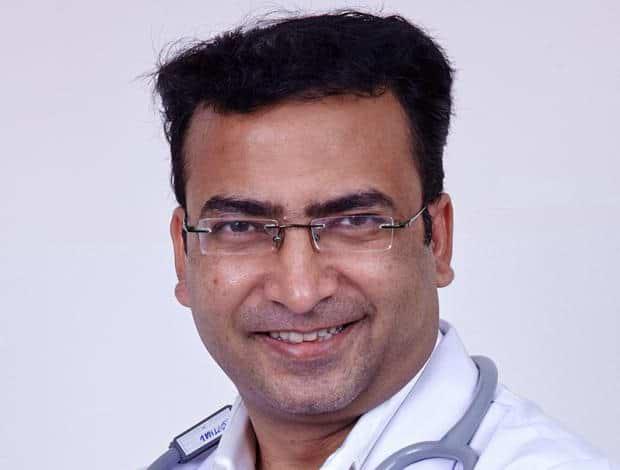
Treating Doctor
Dr. Praveen Gupta
Neurologist- Stroke Intervention, Stroke Rehabilitation, Celebral Palsy, Advanced Second line management for multiple scleoris, Epileptic Surgery, DBS Surgery
Fortis Memorial Research Institute Gurgaon, India
18 Years of Experience
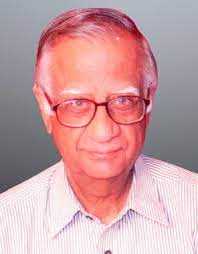
Treating Doctor
Dr. Ravi Bhatia
Neuro surgeon- Neuro Oncology, Craniovertebral Junction (CVJ) Anomalies, Brain and Spine Tumors, Celebrovasculkar Surgey
Indraprastha Apollo Hospitals, New Delhi New Delhi, India
60 Years of Experience
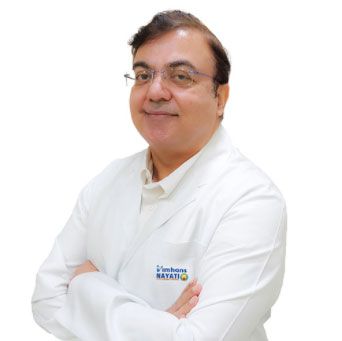
Treating Doctor
Dr. Shamsher Dwivedee
Neurologist- Alzheimer Specialist, Epilepsy Disorder, Stroke Specialist, Headache Specialist, Sleep Disorder, Parkinson's Disease, Dementias, Neuromuscular Disorders
Vimhans Nayati Super Speciality Hospital New Delhi, India
33 Years of Experience
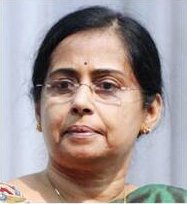
Treating Doctor
Dr. Asha Kishore
Neurologist- Ankle surgery, Knee Replacement, Hip resurfacing with computer navigation, Anthroscopic Meniscus Surgery, ACL Reconstruction Procedure
Aster Medcity, Kochi Cochin, India
31 Years of Experience
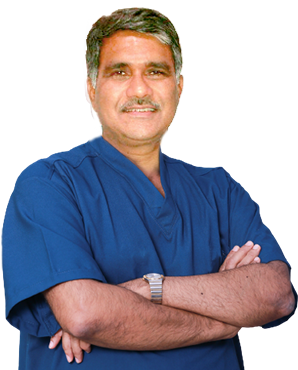
Treating Doctor
Dr. L. N. Tripathy
Neuro surgeon- Traumatic Brain Injury, Spinal Cord Injury, Microsurgery, Aneurysm Specialist, Functional Neurosurgery, Spinal Fusion, Degenerative Spine Disorder
Medica Superspeciality Hospitals, Kolkata Kolkata, India
35 Years of Experience
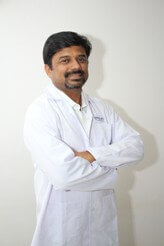
Treating Doctor
Dr. Harshil Shah
Neuro surgeon- Spine Surgery, Traumatic Brain Injury, Traumatic Brain Injury, Skull Base Surgery, Spine Surgery, Managing trigeminal autonomic cephalalgia, Spine Surgery, Brain Surgery and Brain Aneursym Surgery, Spinal instrumentation, Endoscopic Neurosurgery, Pituitary Surgery, Spine Surgery, Spine Surgery, Spine Surgery
Shalby Multi-Specialty Hospitals, Ahmedabad Ahmedabad, India
16 Years of Experience

